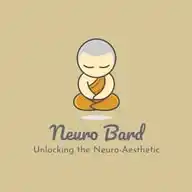
Neuro Bard
May 16, 2025 at 01:09 PM
Cognitive Biases: Understanding cognitive biases – systematic errors in thinking – is crucial for better decision-making. Knowing about common biases like:
● Confirmation Bias: The tendency to search for, interpret, favor, and recall information that confirms or supports one's prior beliefs or values.
● Practical application:
● Actively seek out contradicting viewpoints before making important decisions.
● Anchoring Bias: The tendency to rely too heavily on the first piece of information offered (the "anchor") when making decisions.
● Practical application:
● Be aware of initial offers or suggestions, and don't let them unduly influence your judgment.
● Availability Heuristic: Overestimating the likelihood of events that are easily recalled, often due to their vividness or recent occurrence.
● Practical application:
● Don't let sensationalized news stories unduly influence your risk assessments. Consider statistical probabilities. 2. Emotional Regulation: Learning to manage your emotions is vital for mental well-being and effective relationships. Techniques include:
● Mindfulness: Paying attention to the present moment without judgment. This can help you observe your emotions without getting swept away by them.
● Cognitive Reframing: Challenging negative thoughts and replacing them with more balanced perspectives. For example, instead of thinking "I'm a failure," try "This didn't go as planned, but I can learn from it."
● Emotional Labeling: Putting your emotions into words. Simply acknowledging "I'm feeling angry" can help diffuse intense feelings. 3. Memory and Learning: Improving memory and learning strategies enhances productivity and overall cognitive function:
● Spaced Repetition: Reviewing material at increasing intervals improves long-term retention. Use flashcards or spaced repetition software.
● Active Recall: Testing yourself on information rather than passively rereading it strengthens memory.
● Chunking: Breaking down large pieces of information into smaller, more manageable chunks improves learning and recall. 4. Motivation and Goal Setting: Understanding motivational principles can lead to greater success in achieving your goals:
● SMART Goals: Setting Specific, Measurable, Achievable, Relevant, and Time-bound goals increases your likelihood of success.
● Intrinsic vs. Extrinsic Motivation: Intrinsic motivation (driven by internal rewards) is generally more sustainable than extrinsic motivation (driven by external rewards).
● Growth Mindset: Believing your abilities can be developed through dedication and hard work, rather than being fixed. This fosters resilience and perseverance. 5. Social Psychology: Understanding social dynamics can improve relationships and interactions:
● Bystander Effect: The more people present in an emergency, the less likely any one person is to help.
● Practical application:
● If you see someone needing help, take action directly, don't assume someone else will.
● Attribution Theory: How we explain the behavior of ourselves and others. Understanding biases in attribution (e.g., fundamental attribution error – overemphasizing personality traits and underestimating situational factors) can improve empathy and understanding.
● Social Comparison: We constantly compare ourselves to others. Be mindful of who you compare yourself to and avoid unhealthy comparisons that damage self esteem
❤
❤️
2